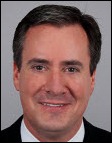The article about Pediatric Associates in CA has a nugget with a potentially outsized impact: the implication that VFC vaccines…
From the Consultant’s Corner 4/12/13
The Next Available Appointment Is…
By Brad Boyd
Have you ever gone to the doctor for a routine checkup, only to be told that you should really see a specialist to take a closer look at that issue you’re having? Perhaps you have frequent migraines or your asthma symptoms are getting worse. As you try to make the appointment, you are told that the only time you can see the specialist is in six weeks, on a Tuesday, at 10:45 a.m., because the doctor is not available any other time.
This situation is not only irritating for you—the patient—it is also aggravating for your primary care physician. When patients have trouble gaining access to specialists, it can mean delayed treatment, potentially compromised patient care, and more headaches for the primary doctor. I’ve observed that some primary care physicians cope with this problem by referring patients to specialists outside their network, which presents issues for both the physician and the network.
As healthcare organizations pursue clinical alignment and integration initiatives—such as Accountable Care Organizations and other value-based reimbursement strategies—I have found they focus on steps like implementing integrated information technology systems, standardizing medical management, and fostering greater physician alignment.
While these are important aspects of an integrated approach, what many organizations fail to realize is that they also have to address patient access issues. If patients have trouble getting in to see their doctor or specialist, there could be some pretty significant patient care, satisfaction, and revenue effects.
I’ve noticed this problem happens most often when academic institutions seek clinical alignment and integration with non-academic organizations, such as physician practices. In these situations, physician compensation in the academic medical center may not be aligned with productivity expectations. In other words, the compensation model for specialists doesn’t incentivize them to see large numbers of patients. They may limit the number they see, choosing instead to focus on research activities or other priorities.
Improving patient access and the overall patient experience requires a holistic view of the academic institution-physician practice partnership, taking into consideration governance, leadership, and management issues. I recently tackled this type of holistic assessment for one of my clients, an academic group practice. Together, we developed a patient access optimization program which we piloted across two departments.
The result was a 25 percent increase in appointment slots and a 14 percent growth rate in ambulatory revenues. Satisfaction scores also improved for employed and aligned practices as well as their patients because patient care was better coordinated across the health system. In addition, referrals to competing health systems went down substantially. Based on the success of the pilot, the organization is deploying a new standardized "patient care model" throughout the remaining clinical departments.
Spending time looking at patient access and figuring out ways to increase specialist availability can ensure that any clinical integration program you pursue is successful. By addressing this issue, you can make the road toward clinical integration a little easier and ultimately reach your goals in this effort.

Brad Boyd is vice president of sales and marketing for Culbert Healthcare Solutions.
